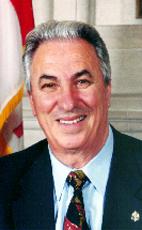Madam Speaker, I will be splitting my time with the member from Bras d'Or.
I am pleased to debate the votable motion tabled by the member from Peace River. The motion deals with the identification of a problem in tax accounting by Canada Customs and Revenue Agency, a problem that as soon as it was identified last January, was dealt with by the government in a speedy and responsible way.
The problem was detected by the Canada Customs and Revenue Agency in the course of modernization of its computer system. As soon as the problem was detected, it was brought to the attention of the auditor general. The government took immediate steps to ensure that overpayments would stop immediately.
I assure everyone that the problem did not in any way affect taxes paid by individuals or businesses. The problem resulted mainly in a significant overpayment to four provinces; Alberta, British Columbia, Manitoba and Ontario.
Under the tax collection agreement the Canada Customs and Revenue Agency collects personal income taxes on behalf of all Canadians and provinces, except the province of Quebec. Then the finance department pays the appropriate share of the taxes collected to the provinces. All this is based on accounts provided by the Canada Customs and Revenue Agency.
The problem arose with respect to the capital gains realized by the mutual fund trusts. We all know that mutual funds are a type of collective investment vehicle allowing Canadians a simple way to invest indirectly in a broad range of stocks and bonds in a number of different markets. The funds are essentially a pooled investment.
Mutual fund trusts pay federal and provincial income taxes on capital gains. Then, according to income tax law, mutual trust funds receive a refund on both portions of the tax paid once the funds are cashed in.
In normal circumstances the provincial portion of the capital gains from the mutual fund trusts should be deducted from the provincial revenue and the federal portion should be deducted from the federal revenue. Due to a problem in the CCRA accounting process, and we all know that errare humanum est or to err is human, the provincial portion was deducted from the federal revenues instead of the provincial revenues. In short, the provinces ended up getting more tax revenues on the capital gains of the mutual fund trusts than they should have and the Government of Canada ended up getting less than its share.
As soon as the mistake was detected, the matter was promptly handed to the auditor general to do a rigorous analysis of the accounting error and report to the government. We know that on June 3, 2002, the auditor general released her report on the years in which the overpayment occurred.
At the moment the Department of Finance is studying the report before making any further decision. Prudence demands consideration before making decisions and that is exactly what the government is doing. Our record is clear. It shows five consecutive balanced budgets.
That is the Liberal government's record up to and including last year's federal budget. This is a first in 50 years and a $36 billion payment toward our national debt. It is something to be proud of. Today our nation's finances are among the healthiest in the G-7. Our economy is among the fastest growing and our triple A rating has been restored.
Canadians expect the Liberal government to make the right decision on these overpayments because we have a record of making good decisions that make this federation work. We do not roll the dice. We never did. The Liberal government has managed the federation with success. We have shown it over and over again.
For example, our co-operative approach is reflected in the reform of Canada's social union. The government reached an agreement on environmental harmonization with nine provinces and the two territories of the day. Our government has initiated changes to the federation in co-operation with the provinces and territories in areas as diverse as infrastructure and the Canada pension plan.
No one forgets that the reasons the provinces were crunched by lower transfer payments in the mid-nineties was because of a whopping $42 billion deficit left by the previous government and how that put the whole country in a financial straightjacket.
Yes, an error occurred. Yes, overpayments were made to the provinces but through openness and transparency every step possible was taken to resolve the issue. The Liberal government will consult with the provinces and make a decision on how to best deal with these overpayments. I am sure that when the decision is made it will serve the best interests of all Canadians.

